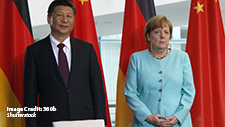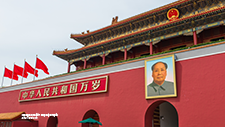China and International Law: History, Theory, and Practice

Ge Chen
Abstract
The current contours of China’s economic growth and political influence have given rise to interests in and concerns about China’s global profile as well as its strategies of International Law. China’s stance and tactics in International Law are, however, rooted in its unique historical development and the consequent theoretical framework, which provide guidance to its practice in international affairs, transactions, and interstate relations. This paper aims at providing an overview of China’s approach to International Law with respect to the history, theory, and practice.
Related Publications
-
ISDP Annual Report 2023
ISDP’s Annual Report for the year 2023. We look back on 2023, a year in which tensions and conflicts captured the strategic space in ISDP’s focus areas, making headlines around […]
-
Merkel’s China Legacy
Abstract Angela Merkel’s time as the Chancellor of Germany is soon coming to an end. An unofficial mainstay of the European Union, she leaves office having helped put in place […]
-
Risk Reduction and Crisis Management on the Korean Peninsula
The situation on the Korean Peninsula is inherently intertwined with the growing instability of the East Asian security environment, where high tensions significantly increase the risk of unintended incidents and armed […]
-
EU-Taiwan Semiconductor Cooperation: Lopsided Priorities?
Abstract: The European Union (EU) seeks de facto closer cooperation on chip production with Taiwan. This was underlined during Foreign Minister Joseph Wu’s Europe Tour in 2021 and by a […]
-
China’s Communist Party at 100: From Revolution to Rule
Introduction The founding of the People’s Republic of China (PRC) in 1949 was a turning point in the history of the Chinese Communist Party (CCP), which celebrates its hundredth anniversary […]



